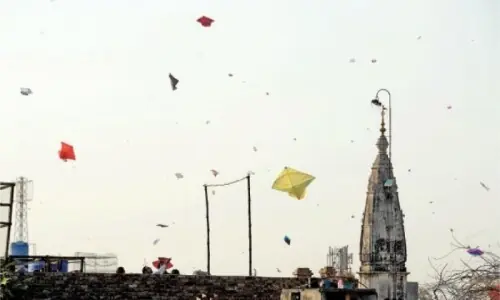
KARACHI: A US official in a cable sent to the State Department stated that “financial support estimated at nearly 100 million USD annually was making its way to Deobandi and Ahl-i-Hadith clerics in south Punjab from organisations in Saudi Arabia and the United Arab Emirates ostensibly with the direct support of those governments.”
The cable sent in November 2008 by Bryan Hunt, the then Principal Officer at the US Consulate in Lahore, was based on information from discussions with local government and non-governmental sources during his trips to the cities of Multan and Bahawalpur.
Quoting local interlocutors, Hunt attempts to explain how the “sophisticated jihadi recruitment network” operated in a region dominated by the Barelvi sect, which, according to the cable, made south Punjab “traditionally hostile” to Deobandi and Ahl-i-Hadith schools of thought.
Hunt refers to a “network of Deobandi and Ahl-i-Hadith mosques and madrassahs” being strengthened through an influx of “charity” which originally reached organisations “such as Jamaat-ud-Dawa and Al-Khidmat foundation”. Portions of these funds would then be given away to clerics “in order to expand these sects’ presence” in a relatively inhospitable yet “potentially fruitful recruiting ground”.
Outlining the process of recruitment for militancy, the cable describes how “families with multiple children” and “severe financial difficulties” were generally being exploited for recruitment purposes. Families first approached by “ostensibly ‘charitable’” organisations would later be introduced to a “local Deobandi or Ahl-i-Hadith maulana” who would offer to educate the children at his madrassah and “find them employment in the service of Islam”. “Martyrdom” was also “often discussed”, with a final cash payment to the parents. “Local sources claim that the current average rate is approximately Rs 500,000 (approximately USD 6,500) per son,” the cable states.
Children recruited would be given age-specific indoctrination and would eventually be trained according to the madrassah teachers’ assessment of their inclination “to engage in violence and acceptance of jihadi culture” versus their value as promoters of Deobandi or Ahl-i-Hadith sects or recruiters, the cable states.
Recruits “chosen for jihad” would then be taken to “more sophisticated indoctrination camps”. “Locals identified three centres reportedly used for this purpose”. Two of the centres were stated to be in the Bahawalpur district, whereas one was reported as situated “on the outskirts of Dera Ghazi Khan city”. These centres “were primarily used for indoctrination”, after which “youths were generally sent on to more established training camps in the Federally Administered Tribal Areas and then on to jihad either in FATA, NWFP, or as suicide bombers in settled areas”.
The cable goes on to quote local officials criticising the PML-N-led provincial and the PPP-led federal governments for their “failure to act” against “extremist madrassas, or known prominent leaders such as Jaish-i-Mohammad’s Masood Azhar”. The Bahawalpur district nazim at the time told Hunt that despite repeatedly highlighting the threat posed by extremist groups and indoctrination centres to the provincial and federal governments, he had received “no support” in dealing with the issue unless he was ready to change his political loyalties. The nazim, who at the time was with the PML-Q, “blamed politics, stating that unless he was willing to switch parties…neither the Pakistan Muslim League - Nawaz provincial nor the Pakistan People’s Party federal governments would take his requests seriously”.
Cable referenced: WikiLeaks # 178082.


































